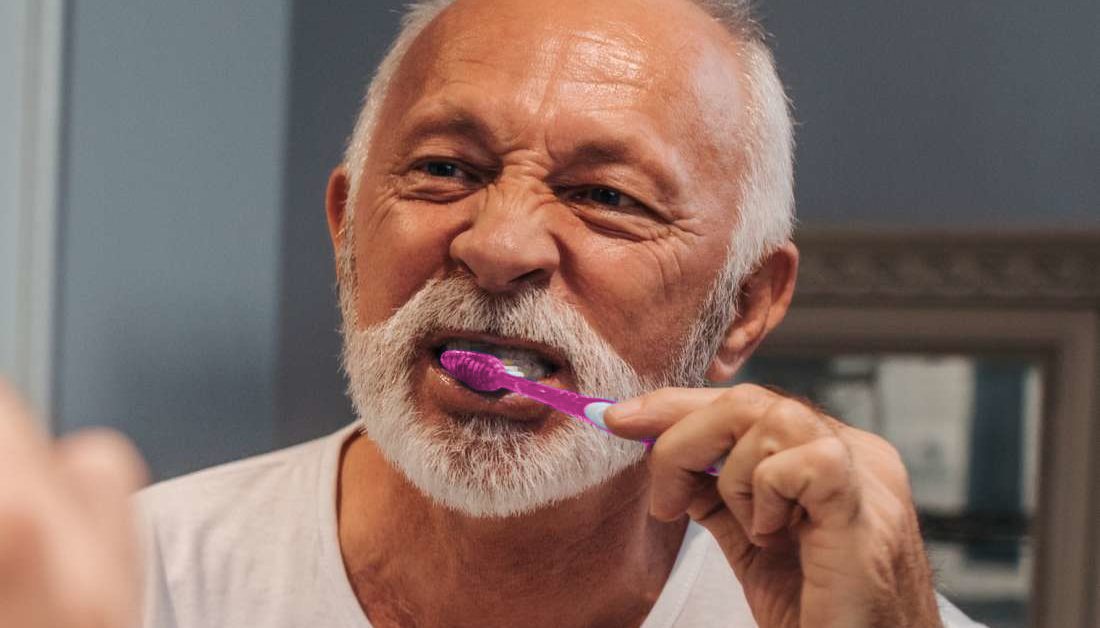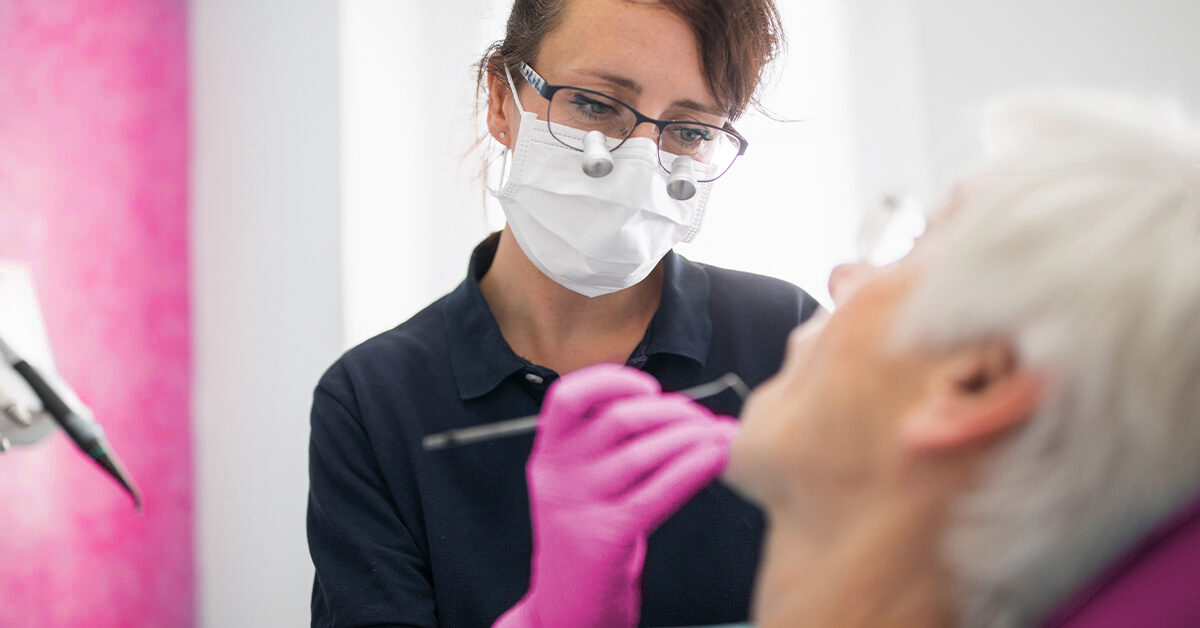Why our teeth are worth looking after!
“I didn't want to be an actress. I wanted to be a dentist, but you never know what life will bring you” - Sofia Vergara
We might not think of them to be the centre of the universe, but our teeth are the unsung hero of our everyday lives. They are instrumental in doing the tasks that bring us joy. From eating our favourite foods, speaking to our favourite people, having something to give to the tooth fairy, and sharing a smile when something makes us giggle. Both our physical and emotional wellbeing depends on the preservation of our pearly whites.

While a lot of us consider it to be common sense to brush our teeth twice a day and visit the dentist at least once a year, the reality is that the state of Aussie dental health is not where it should be.
Australian dental health at a glance
- According to Australian Dental Association, tooth decay is the second costliest diet-related disease in Australia, with an economic impact on par with that of heart disease and diabetes.
- 70% of tooth loss in Australia is due to decay, 20% is due to periodontal disease, and 10% is due to other causes.
- Additionally, some Australians still lack adequate access to fluoridated water, thereby increasing the chances of oral health conditions.
- As of 2020, 32.1% of Australians aged 15+ have untreated tooth decay, a 6.6% increase from 25.5% in 2004.
- Almost half of the Australian adult population (47%) do not brush their teeth twice a day.
- Less than half (48.8%) of Australian adults have had a dental check-up in the last 12 months.
How dental health impacts overall health:
The health of our entire body is often dependent on the state of our teeth. Why?
The mouth is the most likely entry point for infections, which can then spread to the rest of the body (that’s why we wear masks to stop the spread of Covid!)
Oral health itself is determined by a multitude of lifestyle factors, including diet, hygiene, smoking and alcohol use, as well as stress and trauma. These factors are also connected to a number of other chronic conditions such as heart disease, cancer and stroke.
The most common symptoms of oral diseases and disorders are pain, infection, and tooth loss. These symptoms often result in difficulties with chewing, swallowing, speaking, and sleeping.
If someone does experience tooth loss, this can directly impact their diet and nutritional intake, which can further deteriorate their overall health and already existing conditions.
Severe dental diseases can also result in the destruction of soft tissues in the mouth, which can lead to lasting disability, and in some cases, death.
What health conditions are linked to dental health?
Research has linked chronic oral infections with the following conditions:
Endocarditis: infection of the inner lining of the heart chambers, typically occurs when bacteria from another part of the body, such as the mouth, enters the bloodstream and attaches to part of the heart.
Cardiovascular disease: research suggests that heart disease, clogged arteries, and stroke might be linked to the inflammation and infections caused by oral bacteria.
Pregnancy and birth complications: Periodontitis, a severe gum infection, has been linked to premature birth and low birth weight.
Pneumonia: Some bacteria in your mouth can travel into the lungs, eventuating into pneumonia and respiratory diseases.

What health conditions can impact dental health?
- Diabetes: Because diabetes reduces the body’s resistance to infection, this puts the gums at risk for disease. Research indicates that those who have gum disease also have difficulty monitoring their blood sugar levels.
- HIV/AIDs: Dental issues such as painful mucosal lesions, are a commonly reported symptom for those living with HIV/AIDs.
- Osteoporosis: This is a bone-weakening disease that carries links with periodontal bone loss and tooth loss.
- Alzheimer’s disease: A deterioration in oral health is often reported as Alzheimer’s progresses.
- Anxiety: anxious habits such as teeth grinding and clenching may cause premature tooth wear, tooth cracking, damage to fillings as well as possible jaw disorders and headaches.
How dental health impacts our emotional health:
Oral hygiene plays a huge role not only in our physical health, but also in our psychological and social well being.
Dental disease often affects the way a person looks and sounds, and as a result can trigger anxiety, depression, self-esteem issues and social stigma when the affected individual cannot function in their daily life due to their condition. This can then limit opportunities for education, employment and social relationships.
Children with poor oral health have long term damaging psychological effects that can carry deep into adulthood. Dental conditions in childhood inhibit participation in school and education, especially if there are many days absent due to illness. These conditions impede on one’s ability to socialise with other children with confidence and develop social skills.
How dental health impacts financial health:
According to the Australian government, the out-of-pocket costs for private dental care are estimated to be $4.698 billion per annum.
Treatment of complex problems in hospitals alongside visits to GPs and pharmacists for treatment of pain and infection and poor oral health impact the broader economy.
In terms of expenditure by the Commonwealth and State and Territory government most shows $10.2 billion was spent on dental healthcare.
Severe dental conditions can also restrict an individual’s participation in the workforce, with lost work days due to illness.
Top tips for Dental Health - from our ‘Dentist Next Door’: Elevate Dental Health Hawthorn

It All Starts with a Healthy Diet
Our teeth are an important part of our body and maintaining a healthy diet will go a long way to keeping dental issues to a minimum.
- Eat plenty of fresh fruit and vegetables, and reduce the amount of processed foods in your diet. If possible, cut out sugary drinks and foods completely from your daily caloric input.
- Drink a litre of pure water every day.
- Avoid consuming acidic drinks like juices, wine, soft and sports drinks, where possible, to combat tooth enamel erosion.
- Remember the five food groups, especially dairy, to strengthen your teeth via calcium.
- Eat plenty of fibre in your diet for optimal cell health.
Brushing Your Teeth
- DO brush your teeth twice a day with a soft toothbrush. Brushing your teeth with soft bristles will avoid gum damage and enhance the health of your oral cavity.
- DO spend around two to three minutes thoroughly reaching all your teeth on each side and on both upper and lower levels. A gentle circular motion of brushing with toothpaste provides best results.
- DON’T brush too vigorously as this will cause bleeding and gum damage
Floss for Best Results
Flossing cleans your teeth of material that brushing alone cannot remove. Brushing only gets around 60% of food detritus left in your mouth post eating. Daily flossing can help prevent tooth decay between your teeth and reduce gum disease.
Regular Dental Check Ups Deliver Optimal Oral Hygiene
Nobody knows teeth and best teeth care like your dentist.
Make sure that you have regular dental check-ups in order to maintain tip top health. Your dentist will perform a comprehensive examination of your mouth and teeth.
Early detection of problems will help you avoid serious issues down the line. Neglecting your oral hygiene will be costly in terms of your health and expenses. Your dentist will regularly clean your teeth to remove tartar build ups.
Good gum health comes from adhering to routine dental check-ups.
Additional Tips for Dental Health
- Protect your teeth with a mouth guard if you are playing contact sports. A custom fitted mouth guard will provide the best level of protection from unforeseen accidents on the sporting field.
- Use a night guard to stop grinding your teeth at night with a night guard. This device is worn whilst you sleep to prevent damage to your teeth from the pressure this causes.
Your dentist can assist you with night guards and custom fitted mouth guards for sport.
These top tips for maintaining teeth and gum health for life will set you on the right path. Your teeth and gums are your best friends – treat them well and they will repay your devotion.






















